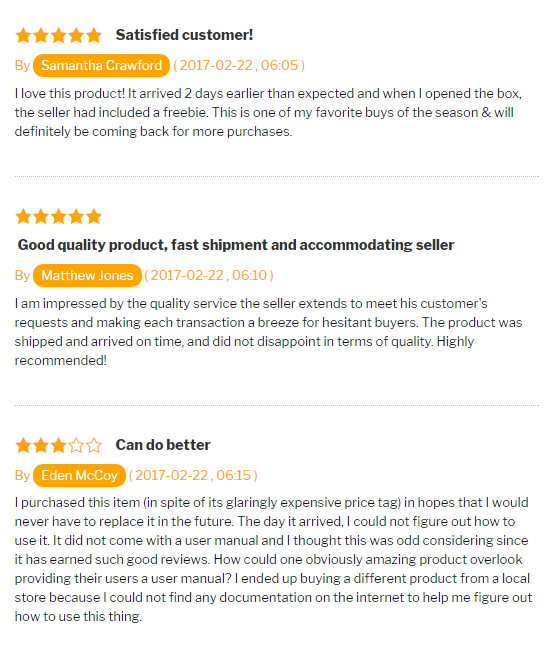Shopify is one of the more preferred ecommerce platforms, it has great features and readily integrates with third party apps that help you maximize and optimize your ecommerce business.
Shopify currently has more than 600,000 users spread across 175 countries, it enjoys wide appeal and adoption.
Whereas Shopify isn’t 100% flawless, it has nearly everything you require plus more to run a successful online retail business, hence the huge following.
Some of these features include:
- a fully functional website with blog
- thousands of themes to choose from
- easy website customization requiring no coding skills
- domain name registration/hosting packages
- free SSL certificate
- shopping cart integration
- dropshipping integration
- lots of apps, plugins and extensions
- payment gateways
- rating and review system, and tons of other stuff.
But most Shopify store owners do not fully know what to do with all that stuff or how to maximize them. They know they want their stores to succeed but don’t know exactly where to start or what to do.
In this post, I’ll be highlighting 5 key features most top Shopify stores have in common so you can learn from them and improve your game.
At their core, they’re all Shopify stores, but these ones in addition to selling different products in different niches, have managed to differentiate themselves from the crowd, hence they stand out.
Here are:
Some Top Shopify Stores to Look to for Inspiration
Stores like the following are good examples of successful Shopify stores:
- GameKlip
- Pencil by FiftyThree
- Poundtoy
- Note Beauty
- Khara Kapas
- Bremont
And here are:
5 Key Things Top Shopify Stores Share
1.Great Homepages
Grabbing customer attention is no piece of cake, that’s the task of your homepage. Is it good enough for shoppers to want to touchdown on and does it have effective landing pages?
Your homepage is perhaps the first point of contact shoppers have with your online shop, don’t make it the last. Remember that line about first impressions? Great.
Search engine optimization (SEO) is a powerful tool in relation to homepages and entire websites. It’s also an essential piece of marketing strategy for many ecommerce companies. It can make a big difference in your sales if you’re selling products that people usually look for online. With SEO, you can diversify your traffic and bring your product before customers as your organic content endorses.
With the help of a trusted Shopify SEO expert, a Shopify ecommerce company receives professional services in ranking its product and category pages on the first page of search engine giants, like Google. Suppose your web pages rank well on search engine results pages (SERP). In that case, more people will likely click and engage with your ecommerce website, providing you more opportunities to sell or position your product as the solution to their needs.
Here are a few things top stores have on their homepages:
- Discounts/Sales
- Promos
- Coupons/Vouchers
- Offers
- Top selling products
- New arrivals
- Categories
- Contact information
- Guarantees
- Return policy
- Trust seals, and so on
Live chat is another feature top-performing (ecommerce) websites include on their homepages. It is instant and more convenient for customers who hate to fill out a contact form or wait to wonder if you got their emailed complaint.
2.Minimalist Design
Top stores, Shopify or not; mostly adopt a minimalist approach to website design with one focus in mind, sales. You won’t see unnecessary ads, banners, posters, buttons cluttering up the space.
This approach reduces noise and distraction, helping shoppers focus more on shopping. Navigation also improves with the simple yet clever layout of minimalist website designs.
Images of happy, smiling models are another great plus for ecommerce website design. It tends to communicate that shopping on (fill in your store name) is a delight with satisfaction guaranteed.
Product photography also makes up a good portion of your ecommerce website design. Poor product photography can easily translate to poor website design in eCommerce.
Online shoppers don’t only pay they also pay attention to good website design. Keep that in mind.
3. Mobile Responsiveness
52% of worldwide online traffic comes from mobile devices as of 2018. This figure is set to rise with the rising tide of global mobile devices penetration.
Clever Shopify stores make their sites mobile responsive to serve this growing demographic. Thankfully most free and paid Shopify themes are mobile responsive by default.
With over 40% of all online purchases done via mobile, best Shopify stores spend a little extra time, money and effort making sure their sites are mobile responsive.
A non-responsive theme fails to properly render your retail website on multiple (mobile) devices making it difficult for mobile shoppers to browse products and buy.
Implement 1-3 above in your website design and see.
4. Ratings and Reviews
Talking about seeing, one thing nearly every online shopper wants to see on your website is ratings/product reviews. Shopify customers are no different.
Customer reviews are invaluable assets to eCommerce stores and Shopify templates have plugins to help you add product review features to your web-store. Top Shopify stores do this.
5-star ratings and product/customer reviews boost buyer confidence and trust levels. Make sure to display yours prominently.

Top stores also showcase negative or not-so-positive reviews, in fact, nearly every review. Being real is really effective. If your reviews are too tailored, they’d seem too good to be true.
Some plugins can prompt shoppers to leave a review about their last purchase on a repeat visit.
5. Publicity
One interesting find about most successful Shopify stores is they do such a good job of marketing and publicity that they end up being covered or featured in major publications.
Usually, their success stories serve to inspire other ecommerce entrepreneurs, but they can also make shoppers buy out of solidarity. And if you make a good impression they could become hooked.
Content marketing is crucial in providing high-level brand awareness to your target audience, which helps boost your publicity. You can make your Shopify store more successful with loyal customers gained through building long-term and more profitable business relationships with your organic content.
Similarly, being covered or featured in blogs and news outlets with vast followings drives a huge amount of free traffic. Press releases also work well. Guest blogging on major blogs is another powerful way store owners can drive targeted traffic to their stores.
Social media marketing is your gateway to increasing your publicity and store traffic by linking your website to your social media accounts. Many successful Shopify stores have a solid social media presence. They know how to blend social and commerce. Instagram and Facebook are great for eCommerce stores as they rely heavily on photos/videos, which can be used to influence the shopper purchase decisions.
In addition, seeking the help of social media influencers can drive your reach and sales. Influencers have many followers and they can promote your Shopify product for a smaller fee than brand ambassadors.
Conclusion
Becoming a Shopify or ecommerce top seller is no child’s play. Some achieve this quickly others slowly. In either case, certain trends run deep among stores that have managed to attain ecommerce success.
Implementing these tips will increase your chances of ending up at the top. Consistency, creativity and innovation are key to attaining success.
Which ones are you already implementing or ready to start implementing? Tell us in the comments section.
Author Bio
Amos Onwukwe is an AWAI trained Business/Ecommerce B2B/B2C Copywriter, featured in scores of blogs including Huffington Post, Dumb Little Man, Ecommerce Nation, eCommerce Insights, Understanding Ecommerce, Result First, Floship, SmallBusinessBonfire, SmallBizClub, Successful Startup 101, Business Partner Magazine, RabidOfficeMonkey, etc.
He’s available for hire.
Twitter: @amos_onwukwe
amylimitx@gmail.com



